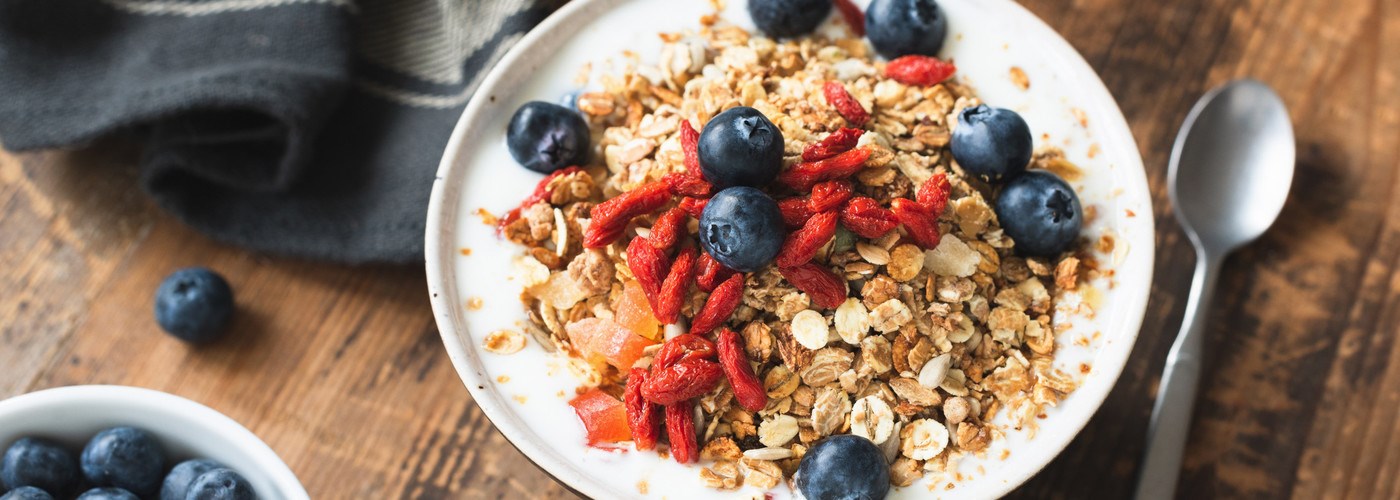Probiotics and Prebiotics: What’s the Difference and How Do They Impact Gut Health?
Your gut is home to trillions of microorganisms, mainly bacteria, that make up your gut microbiome. This complex ecosystem plays a vital role in pretty much every aspect of your wellbeing, impacting your digestion, immune function, and even your mental health.
Essentially, improving your gut health can improve your overall wellbeing – which is where prebiotics and probiotics come into the picture.
In this article, we’ll explore the difference between prebiotics and probiotics, as well as how they can support your overall gut health.
What are probiotics?
Probiotics are live bacteria and yeasts that can help to restore the natural balance of microorganisms in your gut.
You may have heard them described as the ‘good’ or ‘friendly’ bacteria in your gut, as they can provide many different benefits for your body. By increasing the number of ‘good’ bacteria in your gut, you can not only improve digestion but boost your overall health.
The live yoghurts or yoghurt drinks you find on supermarket shelves are one of the most popular ways of consuming probiotics, but they are also available as supplements too.
What are prebiotics?
Prebiotics are non-digestible foods that encourage the growth of the good bacteria, which help to improve your overall gut health. Instead of being digested by your body, prebiotics are used as a food source for that healthy bacteria, helping them grow and multiply.
What’s the difference between prebiotics and probiotics?
If probiotics are the good bacteria that help to improve your overall gut health, then prebiotics are the food source that allows the probiotics to thrive, making them more effective.
Think of your gut as a garden. Probiotics are like the seeds or new plants you add to the garden to increase its diversity and population, while prebiotics are the fertiliser or plant food that nourishes the garden, helping all the plants flourish and grow strong.
As such, improving your gut health is about finding the best prebiotic and probiotic combination, rather than choosing one or the other.
Do I need to take prebiotics and probiotics to keep my stomach healthy and clean?
For most people, the foundation of good gut health is a healthy and balanced diet that’s rich in fibre from a wide range of fruits, vegetables, and whole grains. This is how to keep your stomach healthy naturally.
However, incorporating probiotic and prebiotic foods into your diet can be a fantastic way to give your gut an extra boost. They can be particularly helpful if you’re looking for ways to improve your digestive health or reset your gut after taking medication, which can disrupt the natural balance of your gut bacteria.
In fact, research has shown that antibiotics can change the gut microbiome and, while it usually recovers on its own after a few weeks, probiotics can minimise the impact. There’s also been early research into the positive effects of probiotics on IBD (Inflammatory Bowel Disease), but more work needs to be done to confirm these results.
What probiotic and prebiotics foods should I add to my diet?
While you can take specific supplements, adding probiotic and prebiotic foods into your diet is often a simpler and more enjoyable way to give your gut health a boost. This gives you more freedom to find the best prebiotic and probiotic combinations that work for you.
We’ve provided lists of gut-healthy foods, below, that include probiotics and prebiotics.
List of probiotic foods
To help introduce more ‘good’ bacteria into your gut, here is a collection of popular probiotic foods that you can look to include in your diet:
- Live yoghurt.
- Kefir.
- Sauerkraut.
- Tempeh.
- Kimchi.
- Miso.
- Kombucha (a fermented tea drink).
- Certain types of cheese, like Gouda, mozzarella, and cheddar.
List of prebiotic foods
To help feed the good bacteria already in your gut, try adding some of these prebiotic foods to your meals:
- Garlic.
- Onions.
- Leeks.
- Asparagus.
- Bananas.
- Oats.
- Barley.
- Apples.
- Flaxseeds.
- Chicory root.
- Jerusalem artichokes.
- Beans and lentils.
So, both prebiotics and probiotics play an important role in supporting your gut health, which can have a positive impact on your overall wellbeing. By including more of these foods in your diet, you can help create a healthier, more balanced gut microbiome.
For more advice on nutrition and healthy living, download the Benenden Health app to access services like the My Health Expert Coach, or sign up for our newsletter for tips delivered straight to your inbox.
You can also sign up to our affordable private healthcare, which gives you access to services such as our 24/7 GP Helpline and Mental Health Helpline, allowing you to talk to professionals about the impact of your gut health. To find out more, get in touch with us today.
Medically reviewed in October 2025.


